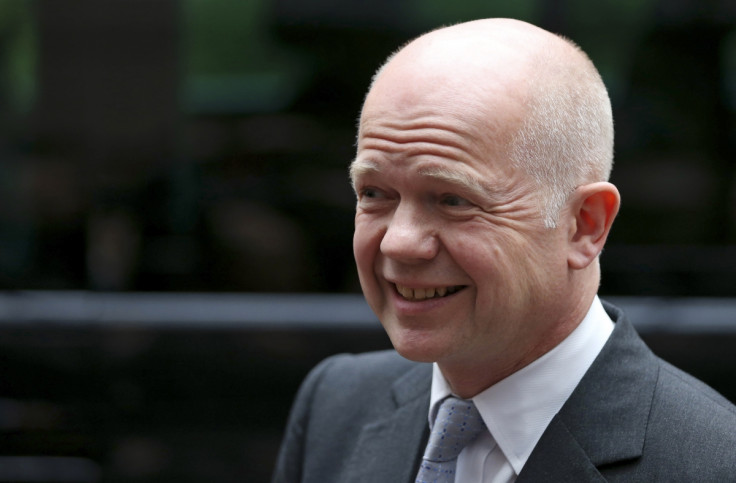EU Eyes Deeper Russia Sanctions After 'Illegal' Ukraine Referendum

The European Union is set to expand sanctions against Russia, targeting companies and individuals, over Russia's annexation of Crimea in March.
At a meeting in Brussels, foreign ministers discussed implementing deeper sanctions that would target sectors of the Russian economy, as Germany, Britain and France threatened tough action if Moscow sought to undermine the presidential election in Ukraine this month.
Foreign ministers attending the Brussels meeting called Sunday's rebel-organised referendum in east Ukraine "illegal" and lacking in credibility.
"These attempts at referendums have zero credibility in the eyes of the world, they are illegal by anybody's standards," British Foreign Secretary William Hague told journalists.
Hague said he hoped the EU would intensify preparations for economic sanctions "if the circumstances require it, particularly determined by the Russian attitude to the elections on May 25."
Dutch Foreign Minister Frans Timmermans told reporters "we need to send a clear message that what we have seen until now is completely unacceptable," adding that he believes the bloc will expand sanctions.
EU ministers have prepared a list of 13 individuals and two Crimean companies from the energy sector that will be added to the sanctions list, EU diplomats told Reuters.
Dependent on Russia for energy supplies, the EU has been divided over the severity of sanctions it should impose on Russia for its behaviour in Ukraine.
The bloc has previously imposed asset freezes and travel bans on 48 Russians and Ukrainians after Russia annexed Crimea, but European leaders have so far avoided sanctions against high-profile Russian companies or sectors of the Russian economy.
The EU relies on Russia for around a third of its gas needs, 40% of which arrives via Ukraine. Hawks including Britain, France and Poland have been pushing for harsher penalties on Moscow while Italy, Greece, Cyprus and Spain have remained dovish.
© Copyright IBTimes 2025. All rights reserved.






















